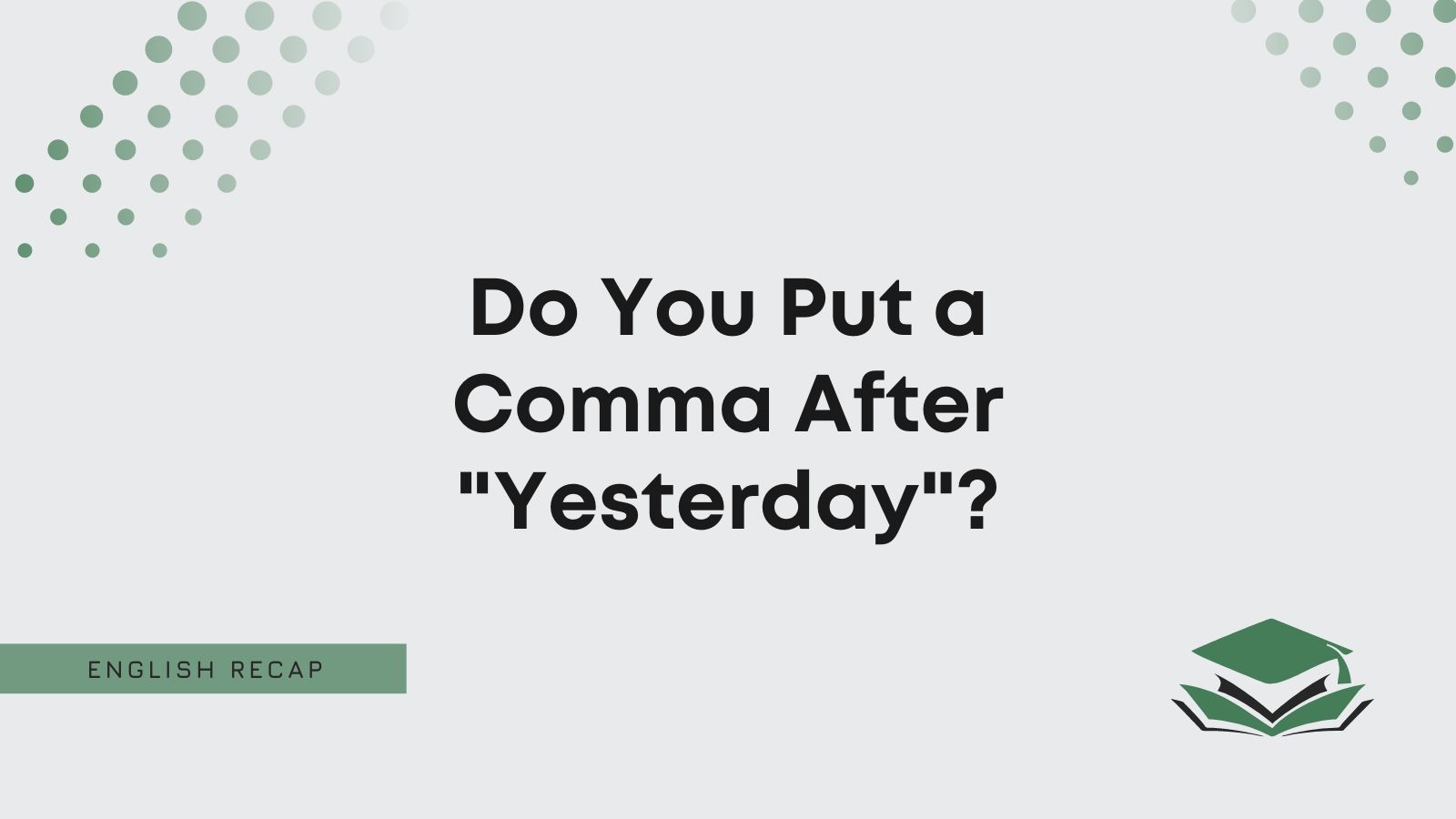Rule 1: Use a comma after “yesterday” when it starts the sentence and functions as an adverb.
- Correct: Yesterday, we all went out for dinner together.
- Incorrect: Yesterday we all went out for dinner together.
Rule 2: You need to put a comma when “yesterday” is the final word in a clause and is followed by a conjunction.
- Correct: She told me it would be ready yesterday, but it’s today, and I still don’t have it.
- Incorrect: She told me it would be ready yesterday but it’s today, and I still don’t have it.
Rule 3: Do not use a comma when “yesterday” is a noun that appears in the middle of a sentence.
- Correct: I saw him yesterday evening, and he was fine.
- Incorrect: I saw him yesterday, evening, and he was fine.
In the rest of the article, you will learn more about the different rules and exceptions to these rules. Our helpful examples will help to clear out any doubts you may have.
When to Use a Comma After “Yesterday”
If you are deciding when to use a comma after “yesterday,” please refer to Rules 1 and 2.
Rule 1: Use a comma after “yesterday” when it is the first word in a sentence and functions as an adverb.
This rule applies to all “adverbial introductions,” and you should do the same for words such as “today” and “tomorrow.”
- Yesterday, we had a great time at the event.
- Yesterday, I called my mother to ask for advice.
However, there are a few exceptions where you could start a sentence with “yesterday” without placing a comma.
For example, use a comma when it acts as a noun but is still the first word. In these instances, a form of the verb “to be” always follows “yesterday.”
- Yesterday was a terrible day for me.
- Yesterday had been a terrible day, and it got even worse when I crashed my car.
Also, if you start with a phrase such as “yesterday evening” or “yesterday morning,” the comma should go after “evening” or “morning” rather than “yesterday.”
- Yesterday evening, we went out for an Italian meal.
- Yesterday morning, I couldn’t get out of bed on time.
Rule 2: Use a comma after “yesterday” when it is the last word in a clause.
When it appears as the last word in a clause, a connecting word such as “and/so/but,” appears before “yesterday.”
- He said he would arrive yesterday, but he still isn’t here.
- She told me she would call yesterday, so I stayed in the house waiting all night for the call that never came.
When to Avoid a Comma After “Yesterday”
When Rule 3 applies, you should avoid using a comma after “yesterday.”
Rule 3: You shouldn’t use a comma after “yesterday” when it is a noun that appears in the middle of a sentence.
- The weather forecast said that yesterday would be sunny, but it rained all day.
- It was such a terrible day yesterday that I was glad when it was over.
However, one exception to this rule is when you use “yesterday” to “reinforce” or “repeat” another noun in the sentence. In these cases, you should put a comma before and after “yesterday.”
- I had been waiting for that day, yesterday, for months.
- My wedding day, yesterday, was the best day of my life.
Conclusion
You should put a comma after “yesterday” when it is the first word of a sentence. Also, put a comma when it appears last in a clause and a conjunction follows it. You shouldn’t put a comma when “yesterday” is a noun, usually appearing in the middle of a sentence.

